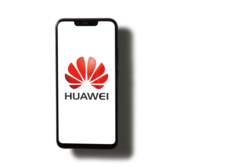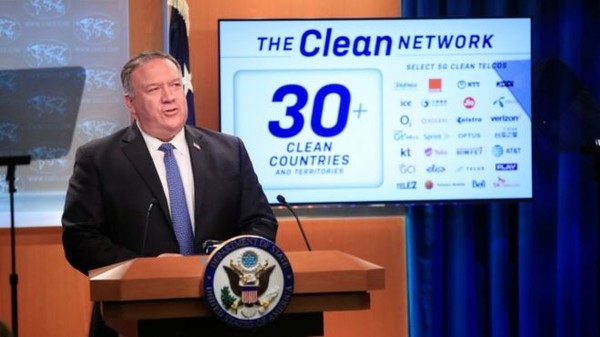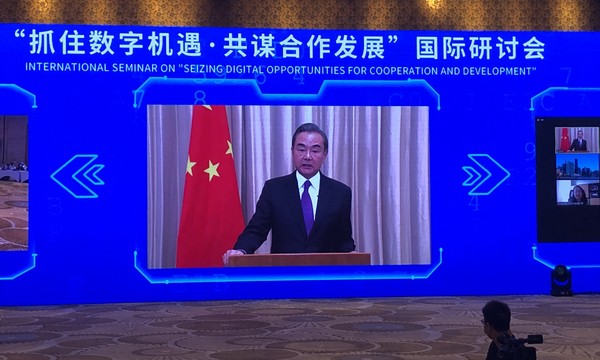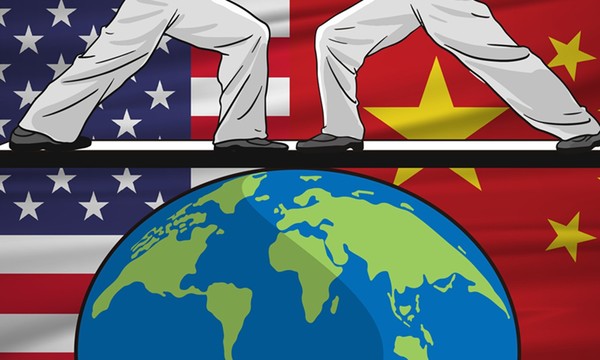Conflict between the U.S. and China, the world's largest powers, is intensifying. The U.S.-China trade war, which has dealt a heavy blow to the global economy, began in 2018, and continues in their conflicts with technology. The U.S. has started to impose strong regulations on Huawei, China's major telecommunications equipment company, and other software companies. According to the Washington Post, SMIC, China's largest foundry company, is also put on the U.S. Department of Commerce's trade blacklist on September 26th. China struck back on the U.S. attack on Chinese IT companies. China has announced a global data security initiative to counteract the U.S. It is not an exaggeration that these two global superpowers, the U.S. and China, have begun an IT war. Let's have a look at the conflict between the two countries.
The Continuing Offense of the U.S. Against Chinese IT Companies

The U.S. offense against Chinese IT companies began on May 15th, 2019, when American President Donald Trump issued an executive order directly targeting China's largest telecommunications equipment company, Huawei. The executive order calls for limiting U.S. companies from using telecommunications equipment made by companies that pose a risk to national security. 69 companies, including Huawei and ZTE, had been added to the Entity List. Since then, Huawei has been suspected of providing confidential information from around the world to the Chinese Communist Party through the ‘backdoor’ on telecommunications networks of many countries. The U.S. imposed additional sanctions to prevent Huawei from making deals indirectly with Taiwan Semiconductor Manufacturing Company (TSMC). Moreover, foreign companies supplying semiconductors that include U.S. technology and components to Huawei need prior permission from the U.S. government since May this year. As a result, Huawei's supply and demand of semiconductors was virtually cut off with its relationship with TSMC, the No. 1 total market value semiconductor foundry company announced by Yonhap News Agency. The U.S. has also recently sanctioned applications such as TikTok and WeChat, which are gaining popularity in the U.S. On August 6th, President Trump signed an executive order banning the use of video-sharing app TikTok run by ByteDance, and WeChat, a messaging app run by Tencent, in the U.S. The executive order was supposed to go into effect on September 15th and would mean that these apps would not be able to serve in the U.S. unless they were to be acquired by U.S. firms. According to Korea Trade-Investment Promotion Agency (KOTRA), it is interpreted as a pressure to sell TikTok and WeChat's U.S. assets to the U.S. companies. According to the Associated Press, on September 19th, TikTok announced a plan to set up a new company to operate TikTok services in the U.S. with Oracle and Walmart, and WeChat has already been ordered to ban its downloads in the U.S. on August 18th. Prior to these sanctions, on April, U.S. Secretary of State Mike Pompeo, Attorney General William Bar, Secretary of Defense Mark Esper, Acting Secretary of Homeland Security Chad Wolf urged the Federal Communications Commission to terminate authorizations to provide services to and from the U.S. of the four Chinese companies, including China Telecom.
The U.S. Announces the Expansion of the Clean Network and Tech Decoupling

The U.S. government has defined China's leading IT companies such as Huawei, TikTok, and WeChat as threats to U.S. security and announced the expansion of ‘Clean Network’ while enforcing strong regulations on them. According to the U.S. Department of State, the Clean Network Program is a comprehensive approach by the Trump administration to protect the nation's assets, including the privacy of U.S. citizens and the most sensitive information of businesses, from aggressive intrusions by malign actors such as the Chinese Communist Party. According to Bloomberg, on August 5th, U.S. Secretary of State Mike Pompeo said at a press conference that he would expand U.S. efforts to establish the clean network. He said "Untrusted Chinese apps such as TikTok and WeChat pose a significant threat to the personal information of American citizens." He said these apps are potential tools for China to censor its content and warned Chinese cloud service companies such as Tencent, Alibaba, and Baidu not to use Americans' sensitive information. He also claimed that “We don’t want companies to be complicit in Huawei's human rights abuses or the Chinese Communist Party’s surveillance apparatus.” Pompeo added that the U.S. will not allow China to harvest data transmitted via undersea cables by Huawei's subsidiary, Huawei Marine. Furthermore, he said more than 30 countries have joined the program, suggesting that it is not the only for the U.S. The U.S has continued criticizing China and President Trump said at a White House press conference on September 7th, “We will end our reliance on China.” He added that “we will make America into the manufacturing superpower of the world and will end our reliance on China once and for all. Whether it’s decoupling, or putting in massive tariffs like I’ve been doing already, we will end our reliance in China, because we can’t rely on China.” President Trump further has raised concerns over the worsening conflict between the two countries by mentioning decoupling, which means an economic breakup between the countries. In addition, according to the Washington Post , on September 26th, the U.S. decided to add Semiconductor Manufacturing International Corp. (SMIC), China's No. 1 semiconductor foundry company, to the Entity List of the U.S. Department of Commerce, like Huawei and ZTE.
China's Announcement of Global Initiative on Data Security

Chinese Foreign Minister Wang Yi countered by announcing China’s own global data security initiative to establish global standards on data security against the U.S. at a seminar in Beijing, only one day after U.S. President Trump mentioned decoupling on September 7th. According to the Wall Street Journal, Chinese diplomats asked foreign governments for support to the initiative. Then, they claimed that it is urgent to formulate global rules and standards reflecting the aspirations and interests of many countries, considering an increasing risk of data security. The initiative opposes impairing critical infrastructure and theft of important data and abusing technology to conduct mass surveillance against other countries. It calls for technology companies not to install back doors to illegally obtain users' data or manipulate the system. In August, the U.S. government announced that they would exclude Chinese telecommunications companies, apps, and cloud providers from operating in the U.S. In response, China is expected to urge all countries to deal with data security in a comprehensive, objective, and evidence-based manner, and maintain an open, safe, and stable supply chain for information and communications technology and services via the initiative. It was also reported that China will urge governments to respect other countries' sovereignty in the way they handle data. In addition to this, Foreign Minister Wang Yi said, “Bent on unilateral acts, a certain country keeps making groundless accusations against others in the name of ‘clean’ network and uses security as a pretext to prey on enterprises of other countries who have a competitive edge. Such blatant acts of bullying must be opposed and rejected.”, increasing tension between the two countries.
Starting with Huawei, fully supported by the Chinese government, Chinese apps such as TikTok and WeChat have also been under U.S. sanctions, and the U.S. has continued to offend Chinese IT companies. Furthermore, the U.S. expanded its clean network program and China encountered it by announcing its own global security initiative, leading the two countries to engage in this IT war. With the U.S. and China urging international participation in the clean network and global initiative on data security respectively, it is expected that China and the U.S. could make a power struggle. The world watches to see how the IT war between the two countries will unfold.


